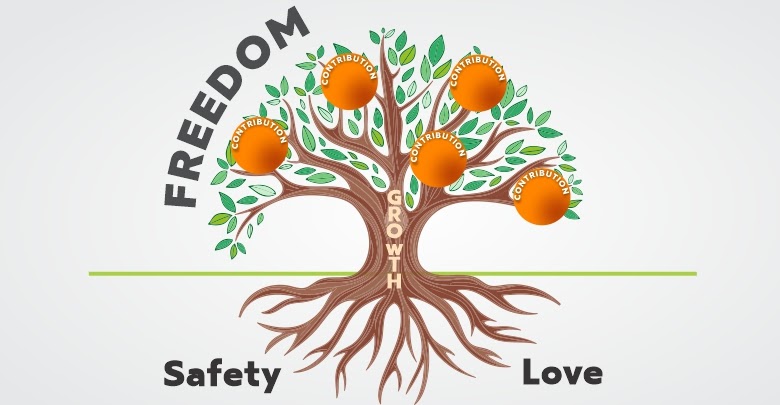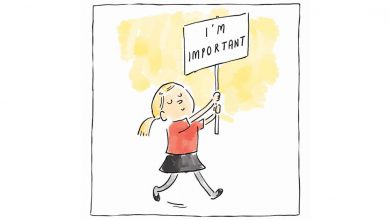Understanding human needs and how they affect behavior
It is difficult, if not impossible, to understand human behavior and especially to hope to change it without understanding the underlying needs that are driving that behavior in the first place. This article will give insight on what are some basic human needs, and how they can be met in positive or negative ways. When it comes to intercultural competence, a lot of the behavior that we appreciate or condemn is coming from the desire to meet a certain need. For instance, racism could be driven by an underlying need for safety, and when that is the case rather than fight against racism it is more effective to meet that person's need for safety.

Why did I choose this tool? When it comes to methods of raising self-awareness and capitalizing on the outcomes for the learners’ benefit, I have found no better method then understanding the needs that are driving behavior. I have developed this model through gaining insights from many different sources and also through observation of behavior, cause and effect. This model is key to understanding why we and others do what we do, and what needs to be addressed if we hope to change our behavior or encourage others to change theirs.
How does this apply to being a trainer?
Dealing with the root cause of the problem, rather than the symptoms, can create a much more profound and effective learning process. For instance, a training about how to fight racism can only go so far and have surface effects at best, but a training on how to meet the needs that are driving racism can have a much more sustainable impact. It can be more challenging to deal with topics in this way, but the results are well worth it.
Main content:
Every behavior is driven by a desire to meet a need. However, since we are not always aware of our needs or what needs we are trying to meet with certain behavior, most of our behavior is unconscious and we only see the results of that behavior rather than the reason. When we’re not happy with the result, we then might try to change the behavior and that either doesn’t work or we end up with potentially another behavior that we are not pleased with because the underlying need hasn’t been met.
So how do we go about understanding and meeting our needs, in positive rather than negative ways? Firstly, let’s take a look at what they are by using an illustration that is easy to observe, a tree and a baby.
At the root of the tree, and in the beginning of the life of the baby, we have the 2 needs of safety and love, and these are also the needs of the subconscious mind. The baby needs to feel that they are safe from harm, and also that they are loved. Love is so important for a baby that if a newborn baby doesn’t have enough touch and human warmth it may not even survive.
The ability to make the baby feel safe and loved is in the hands of the mother (or primary caregiver) and is not really dependent on the circumstances. Even in the middle of a war zone, a baby can be made to feel safe and loved by the mother’s soft voice, warm touch and calm demeanor. And of course, even in a safe environment, the baby can feel very unsafe if the mother is constantly nervous and the baby’s basic needs aren’t being cared for. Safety and love, as well as all the other needs we will be talking about, are psychological needs. This means that just the feeling of being safe and being loved is enough to satisfy these needs, regardless of our actual circumstances.
As the baby starts to get older, the next need that comes into the picture is the need for growth. The need to learn, to develop, to progress. In fact, the baby may be willing to let go of some absolute safety for the sake of growth (it dares to try walking and will probably fall a few times in the process) and as the child gets even older they may start to challenge their parents’ boundaries and test their limits even more. They may start to go to school, learn new things, make new friends, explore new situations and surroundings.
What is important at this phase is that the foundation of love and safety remains, while the child has enough space to try new things and to grow up. Losing the foundation of safety and love while growing up, or concluding that to preserve safety and love they must not grow, progress or challenge the existing norms can lead to psychological problems for the child and future grown-up.
The next natural phase of growing up is the desire to do something for other people, for the world around us, to contribute. This can take place by joining active clubs or groups, by volunteering, by helping out in the household, and eventually by getting a job or starting some kind of business (the most commonly known way of beginning to contribute in some way to others).
This can also be represented by the fruits on the tree. Even though no one is paying or coercing the tree to give fruit, it simply does because this is part of its natural course, and any healthy fruit tree will be giving fruits abundantly.
As humans, we have the same basic desire and instinct, and unlike what many people think contributing is our own need, not a need of the others. Of course, by contributing to others hopefully we are fulfilling their needs as well, but the need for contribution will always be with us regardless of the needs of those around us.
In order to be emotionally balanced, healthy and fit, all 4 needs need to be getting fulfilled at a sufficient level. To recap, they are:
Love
Safety
Growth
Contribution
Another need which isn’t a basic human need, but which is essential to being able to fulfill all the other needs, is freedom. Freedom is important for all the needs, but particularly if you want to experience more than safe love (for example love from your mother and father don’t require much freedom, however finding the right partner for you and being able to make this choice for yourself does) and it is definitely necessary in order to experience growth and contribution.
It’s important to note that growth and contribution are 2 needs that only you can fulfill for yourself, no one else can do it for you. This is why they require freedom and responsibility (which go hand in hand) in order to fulfill, and it’s also why meeting these needs is the only way to experience fulfillment and genuine happiness.
If you are generally feeling satisfied, fulfilled and happy, you are probably finding ways to regularly meet all the above-mentioned needs. Conversely, if you are regularly feeling frustrated, dissatisfied, despondent or even depressed especially when there isn’t a specific reason for it, it’s likely that you are at the moment unable to meet one or more of these needs.
If you think also about the things you want and what matters to you in life, you will find that what you really want are not actually those things but the feeling that you believe they will give you.
If you’re looking for a boyfriend/girlfriend/life partner, what you’re really after is the love that you believe you will have when you find them. If you’re on a pursuit for more money, you could be seeking to satisfy any one of the above needs through it (the safety and security you believe money can provide, the ability to provide for your loved ones and thereby fulfill their needs and wants, the ability to have the resources you need for education or growth of any kind, or the ability to contribute more significantly to those who need it by having more resources yourself).
If you are focused on your career and where you are going from here, chances are you are feeling the need for growth by developing yourself in new ways or getting better at what you already do.
In themselves, a lover, money, career, or anything else actually mean nothing to us. However, the reason why we want them so much and are willing to sacrifice to get them is because of the needs they have the potential to fulfill, and those needs are essential to our survival (speaking of safety and love) and essential to our fulfillment (speaking of growth and contribution).
Reflection questions:
What are some behaviors that we consider to be positive? (for example caring for children, giving to a good cause, falling in love, resolving conflicts and building peace, working hard, etc.)
What needs could these behaviors be driven by?
What are some behaviors that we consider to be negative? (for example, being racist, stealing, being a terrorist, stepping over someone else to get a promotion, etc.)
What needs could these behaviors be driven by?
How can understanding the needs that are driving behavior help me to develop my intercultural competence?
How can understanding the needs that are driving behavior help me navigate my own life better?
Exercises:
How to apply it in everyday life:
For your relationship with yourself:
Take a look at the tree of life, and draw it for yourself if you can. Then rate yourself on a level of 1-5 on how much you are fulfilling each need in your own life. For the need that you scored yourself the lowest on, think about how you can raise that score and then take action to do it. For example, if you rated yourself lowest on growth, think about something new you can learn to fulfill your need for growth and then get started learning it.
For your relationship with others:
Whenever you think badly about someone’s behavior and feel like judging them for it, step back and think “what need is this person trying to meet with their behavior”? Since the needs are never negative, thinking in this way can help you to empathize with them even if you don’t agree with their behavior, and help you to be more constructive in finding a genuine solution that addresses the real problem rather then just the symptom or outcome of it.
Closing:
Everyone, without exception, is doing the best they can to meet their needs. The only reason why some people/behaviors can seem so positive and constructive, and others can seem so negative and destructive, is that some people are not aware of how they can meet certain needs in positive ways, while others are. Classifying people and behavior as good and bad doesn’t really have a sustainable positive outcome, and generally only exacerbates the problem. If we want to eliminate behavior that has negative results, for ourselves and others, we need to learn (and support others in learning) how to meet their needs in ways that are constructive for themselves and others. The person who becomes a suicide bomber and the person who gives millions to a charitable cause could both be meeting the same need: the need to contribute to something that matters. Keeping this perspective in mind can really build our competence to work with and understand people from every culture and background because we realize that we all have the same needs and that our differences only arise from our ways of meeting those needs and not from who we are at our core.




